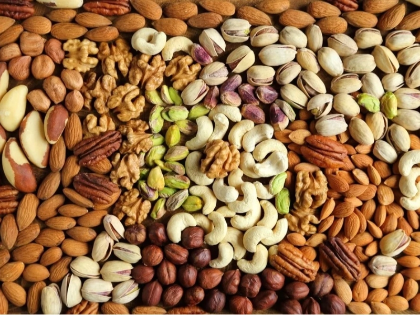Vitamin C and Heart Health: Protecting Your Cardiovascular System
1.The value of vitamin C An essential vitamin, vitamin C, sometimes referred to as ascorbic acid, is involved in many aspects of preserving general health. Although its immune-boosting qualities are well known, cardiovascular health depends critically on vitamin C. Strong antioxidant nature of this water-soluble vitamin helps shield cells from free radical damage. Knowing the link between vitamin C and heart health can help one to have important understanding of how this vitamin supports a good cardiovascular system.
2.Vitamin C's antioxidant actions The main way vitamin C improves heart health is by virtue of its antioxidant qualities. Antioxidants neutralize free radicals—unstable chemicals that could induce oxidative stress and damage to blood vessels. A major contributing cause to the development of atherosclerosis, a disorder marked by artery plaque accumulation, is oxidative stress. Vitamin C helps preserve blood vessels' integrity by lowering oxidative stress, therefore enhancing circulation and lowering the risk of heart disease.

 5.Supporting Low Levels of Inflammation Another important contributing cause to heart disease development is persistent inflammation. Anti-inflammatory actions of vitamin C have been demonstrated, which can assist to reduce the inflammatory processes aggravating cardiovascular conditions. Vitamin C can help lessen the risk of diseases including heart disease, stroke, and other cardiovascular problems by lowering signs of inflammation in the body.
6.Dietary Vitamin C Sources Including a range of foods high in vitamin C can help you to maximize the heart health advantages of the vitamin C. Well-known sources are citrus fruits including oranges, lemons, and grapefruits; other fruits and vegetables are also quite good. Vitamins C abound in bell peppers, strawberries, kiwi, broccoli, and Brussels sprouts. Including these foods in your regular diet will help you maintain your cardiovascular system and guarantee you meet your demands for vitamin C.
5.Supporting Low Levels of Inflammation Another important contributing cause to heart disease development is persistent inflammation. Anti-inflammatory actions of vitamin C have been demonstrated, which can assist to reduce the inflammatory processes aggravating cardiovascular conditions. Vitamin C can help lessen the risk of diseases including heart disease, stroke, and other cardiovascular problems by lowering signs of inflammation in the body.
6.Dietary Vitamin C Sources Including a range of foods high in vitamin C can help you to maximize the heart health advantages of the vitamin C. Well-known sources are citrus fruits including oranges, lemons, and grapefruits; other fruits and vegetables are also quite good. Vitamins C abound in bell peppers, strawberries, kiwi, broccoli, and Brussels sprouts. Including these foods in your regular diet will help you maintain your cardiovascular system and guarantee you meet your demands for vitamin C.
 7.Suggested Daily Consuming Though age and gender affect the recommended daily consumption of vitamin C, generally adult women and men should consume 75 mg and 90 mg respectively. Smokes and those with some medical issues could need more. Although vitamin C is helpful, too much supplementation might cause side effects. Usually, the best way to keep ideal levels of vitamin C is with a balanced diet.
8.Vitamin C's Connection to General Heart Health Many research have looked at the relationship between vitamin C and heart health; many of them point to a reduced risk of cardiovascular disease along with increasing vitamin C intake. The mix of vitamin C's antioxidant, anti-inflammatory, and cholesterol-regulating properties may explain this relationship. Supporting several facets of cardiovascular function, vitamin C can be rather important in maintaining heart health and preventing illness.
7.Suggested Daily Consuming Though age and gender affect the recommended daily consumption of vitamin C, generally adult women and men should consume 75 mg and 90 mg respectively. Smokes and those with some medical issues could need more. Although vitamin C is helpful, too much supplementation might cause side effects. Usually, the best way to keep ideal levels of vitamin C is with a balanced diet.
8.Vitamin C's Connection to General Heart Health Many research have looked at the relationship between vitamin C and heart health; many of them point to a reduced risk of cardiovascular disease along with increasing vitamin C intake. The mix of vitamin C's antioxidant, anti-inflammatory, and cholesterol-regulating properties may explain this relationship. Supporting several facets of cardiovascular function, vitamin C can be rather important in maintaining heart health and preventing illness.
 9.Summary Maintaining heart health depends on vitamin C, a vital substance with many advantages that guard the cardiovascular system. Its antioxidant qualities help fight oxidative stress, and its part in controlling cholesterol and blood pressure helps cardiovascular function even more. Incorporating foods high in vitamin C into your diet will help to lower your risk of heart disease and improve heart function. Understanding the need of vitamin C helps people to be proactive in safeguarding their cardiovascular system and improving their general condition.
9.Summary Maintaining heart health depends on vitamin C, a vital substance with many advantages that guard the cardiovascular system. Its antioxidant qualities help fight oxidative stress, and its part in controlling cholesterol and blood pressure helps cardiovascular function even more. Incorporating foods high in vitamin C into your diet will help to lower your risk of heart disease and improve heart function. Understanding the need of vitamin C helps people to be proactive in safeguarding their cardiovascular system and improving their general condition.








